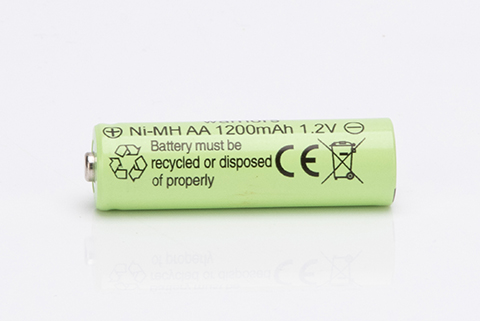Understanding Ni-MH Batteries 5 Key Points You Need to Know
If you’re into rechargeable batteries, you’ve probably heard of Ni-MH batteries. But do you really understand the benefits of Ni-MH batteries, how they work, and how to maximize their performance? This blog will take you deep into the world of Ni-MH batteries, covering their chemistry, real-world applications.
After reading this blog, you’ll have a clearer understanding of what Ni-MH batteries can do and why they might be the perfect choice for your needs.
What are Ni-MH batteries?

Nickel-metal hydride batteries (Ni-MH) are a type of battery that uses nickel and metal hydride as its core chemistry. Unlike single-use alkaline batteries, Ni-MH batteries are rechargeable. This is a big plus—recycling them multiple times is not only cost-effective, but also better for the environment.
What is the voltage of Ni-MH batteries?
Ni-MH batteries are typically rated at 1.2V. You might be thinking, “Isn’t that lower than the 1.5V of traditional alkaline batteries?”
That’s true, but interestingly, despite their slightly lower voltage, Ni-MH batteries offer more consistent performance over time. This stability makes them a reliable power source for many devices.
How Ni-MH Batteries Work?
Ni-MH batteries store and release energy through a chemical reaction between nickel (Ni) and metal hydride (MH). The positive electrode of the battery is made of nickel compounds, while the negative electrode is made of metal hydride materials.
One important advantage: Metal hydrides have a higher energy density than traditional nickel-cadmium (Ni-Cd) batteries. This means that Ni-MH batteries can store more energy after each charge, allowing them to be used for longer. In addition, they do not contain toxic cadmium components, making them a safer and more environmentally friendly choice.
What is the capacity of Ni-MH batteries?

Battery capacity is usually measured in milliampere hours (mAh), which is used to measure its energy storage capacity. Ni-MH batteries generally range in capacity from 600mAh to 2500mAh.
In practical terms, larger batteries can provide longer battery life for devices. However, it is important to note that larger batteries usually take longer to charge. These batteries are ideal for high-energy devices such as digital cameras and power-hungry toys. For low-energy devices such as remote controls or wall clocks, smaller batteries are sufficient.
Why choose Ni-MH batteries?
Ni-MH batteries are not only an efficient rechargeable battery, but also help you reduce your impact on the environment. Although their voltage is not as high as alkaline batteries, their stability and long service life make them an ideal choice in many scenarios.
If you are looking for a reliable power solution that is both environmentally friendly and meets your daily needs, Ni-MH batteries are undoubtedly a good choice to consider!
